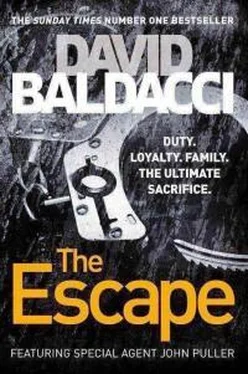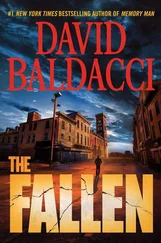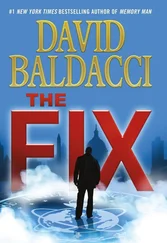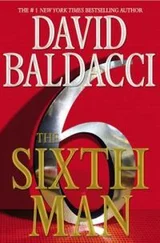“Painkiller,” he explained.
“Should you be mixing that with alcohol?” asked Knox.
“Probably not, but I’ve been doing it for years with no adverse results. And the whiskey makes it go down a little bit better.”
“Painkillers?” said Puller.
Carter pointed to the damaged side of his face. “In case you failed to notice, I’ve suffered injuries of unfortunately a permanent nature.”
“What happened, if you don’t mind my asking?” said Knox.
“Afghanistan in 2001.”
“Were you in the military?” asked Puller.
“I was there serving my country before the uniforms even showed up. I was captured and tortured. What you see on my face is just the visible marks. There are lots of others under my clothes. The Taliban are quite adept at inflicting pain. And scars.”
“Were you gathering intelligence?” asked Knox.
He nodded. “Intel on the ground was vital before we invaded. Afghanistan is a tough nut to crack. Many nations have tried it. The Brits. The Russians. It’s fairly simple to win the war over there turning rubble to dust, as they say. However, it’s absolutely impossible to win over the country after the tanks stop rolling, as we found to our chagrin.”
“How did you get away?” asked Puller.
“I would like to say that I was rescued, but I wasn’t. I got away on my own. Not sure how. I was out of my mind with pain. But maybe I was so desperate that I just pushed the agony out of my head. I killed the three Taliban guarding me. If I had had time, I would have tortured them before I slit their throats. It seemed fitting. But I didn’t have the option. I dragged myself about three hundred miles across landscape that resembled the moon until I reached safety. Two years of physical therapy allowed me to function physically, walk and talk and use my arms. But the scars are permanent. The pain is permanent. So I take pills and I drink whiskey, but neither to excess. And I serve my country, and I do it well. After my ordeal in Afghanistan people considered me a hero, rightly or not. At least I had the wounds to show for it. And it certainly helped my career path, which was like a rocket launch after that. I jumped back and forth between Capitol Hill and the intelligence field and built up quite an expertise on national security and foreign affairs. Attaining SES status and heading up DTRA and the center are really the highlights for me. I couldn’t expect any more. And now you know more about it than you would ever care to,” he added with a self-conscious smile.
“So why the nightcap? It struck me that you had said all you wanted to say at dinner,” commented Puller.
“I did. But I wasn’t sure that you had said all you wanted to say. And if not, I’m here to listen. You’ll find me a good listener. And without the presence of a three-star and the president’s man, I thought you might feel more comfortable in expressing yourselves.”
Knox said bluntly, “Okay, let’s do this. We really don’t think Robert Puller is guilty.”
“Based on what?”
“The evidence at trial was shaky.”
Carter shook his head as he took another sip of his whiskey. “Two eyewitness accounts? Classified data found on his person? A trail of online gambling debts providing the motive? Hardly shaky evidence.”
“The online trail could easily have been fabricated.”
“Perhaps. But the testimony of Reynolds and Robinson?”
Puller studied him carefully. “Inasmuch as you think I can’t be objective about my brother, it may be true that you can’t be objective about Reynolds, since she works for you.”
Carter sat back and considered this statement. “Let’s go down that road for a moment. Let’s assume Reynolds was lying. Why?”
“She was paid to do it,” said Knox.
“So she’s a traitor, paid to implicate your brother. Again, why? What’s so special about him?”
“As you said, he was a very valuable asset to the government.”
“Yes, he was. But our government possesses many valuable people assets, so why go after him in particular?”
“Would there be a reason to get him out of the way at STRATCOM?”
“He was getting ready to leave one branch of STRATCOM after his next promotion, as I said at dinner. He was heading to ISR, which, as you know, is also a command component under STRATCOM. I would have worked with him there, as I also mentioned.”
“Would there be some reason to prevent him from going there?” asked Knox.
Carter shrugged. “I can’t say. ISR has many employees. Was he important enough to pull off such a conspiracy as you’ve described? It would be difficult to believe.”
“You said that you worked with General Daughtrey at ISR when he was still a colonel.”
“That’s right.”
“Since Daughtrey took my brother’s slot at ISR, you implied that might be a motive for my brother to retaliate and kill him. But let’s look at it from the other way.”
Carter put down his drink and said curiously, “How so?”
“Was my brother the first choice for the ISR slot?” said Puller.
“Yes. Hands down.”
“And Daughtrey was the backup?” said Knox.
“Okay, I see where this is going,” replied Carter. “You’re saying Robert Puller was set up to prevent him from going to ISR?”
“Yes, but it also allowed Daughtrey to take his place,” added Puller.
“For what purpose?”
“What did the position entail? What would the person have had access to?” asked Puller.
Carter took another swallow of his drink and rubbed his chin. “Everything, more or less. ISR’s work is broad and far-reaching. From space to underwater and really everything in between. ISR is, in many vital respects, the eyes, ears, and brain of the DoD. Its commander wears dual hats because he also heads up the Defense Intelligence Agency. ISR works with all other major intelligence platforms, NSA, Geospatial, National Reconnaissance. Its responsibilities cross the full military spectrum of requirements, transnational threats, the Global War on Terror, and WMDs. Everything really.”
“So Daughtrey would have had access to all of that?”
“More or less, yes.”
“And then he was murdered,” noted Puller.
“But he had left ISR at that point,” pointed out Carter.
“And went to another component of STRATCOM,” said Knox. “Which one?”
“U.S. Cyber Command.”
Puller nodded. “Another hot spot. How was his work at ISR?”
“I found him extremely talented, hardworking, ambitious.”
“How ambitious?” said Puller quickly.
“Most officers seeking to move up in rank are ambitious. You know that.”
“I’m not talking about medals and stars.”
“Then what?”
Knox said, “Susan Reynolds lives in a million-dollar-plus house, drives a seventy-thousand-dollar car, wears Prada shoes, and has a closet full of Coach bags. And there’s an original Joan Miró painting in her library. I looked the price up. There is no way she could have bought it with even twenty years’ worth of her salary.”
Puller shot her a glance. She hadn’t mentioned the Prada, the Coach bags, or the painting.
She noted his look. “I am a girl, Puller, even if I do carry a gun and kick ass. I notice bags and shoes. And I saw the painting when we were there. I was an art history major at Amherst.”
“Joan Miró?” he asked.
“He was a Spaniard, born in Barcelona. He died decades ago.”
“So he’s a renowned artist or something?”
“Well, let’s put it this way, Puller. One of his paintings sold a couple years back at a Sotheby’s auction in London for nearly forty million. So, yeah, I guess you could say the guy was pretty good.”
“Damn,” said Puller.
Читать дальше












